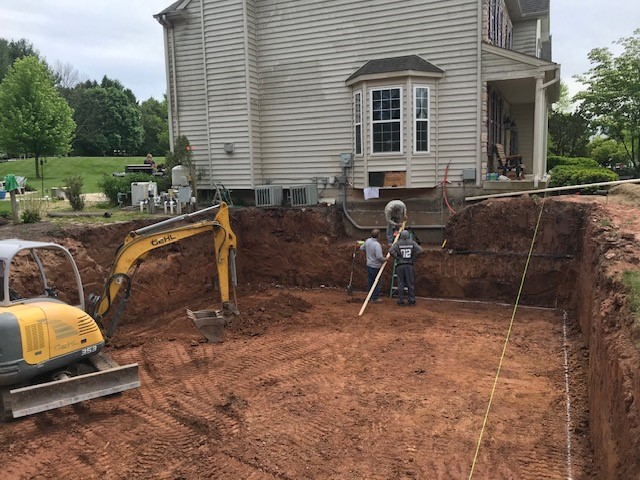Comprehensive Excavation Methods: Mastering the Basics for Success
In the world of construction and civil engineering, the importance of reliable excavation techniques can not be overstated. The cautious preparation, accurate execution, and precise interest to information called for in excavation projects demand an extensive technique that encompasses numerous essential aspects. From first soil analysis to the implementation of safety steps and regular progression monitoring, understanding these core elements is vital for attaining success in any type of excavation undertaking. The real mastery lies not simply in recognizing these fundamentals yet in flawlessly integrating them to navigate the complexities of excavation tasks with finesse.
Comprehending Excavation Task Planning

The preliminary phase of any kind of excavation job is the preparation phase, where crucial decisions are made that can substantially influence the end result of the task. Recognizing the task scope, budget plan, and timeline restraints is critical for creating an extensive excavation strategy that makes sure the project's success.
One key element of excavation project preparation is the development of a detailed timeline that outlines the series of tasks, turning points, and deadlines. By meticulously considering all these factors throughout the preparation phase, excavation tasks can be implemented efficiently and properly, leading to successful end results - lancaster excavation.
Dirt Evaluation and Website Assessment
Performing comprehensive soil analysis and site evaluation is an essential action in the prep work phase of any type of excavation project. Soil evaluation involves determining the composition, structure, and residential or commercial properties of the dirt at the excavation site. This details is vital for comprehending the dirt's bearing ability, wetness content, and capacity for disintegration, which are key consider identifying the excavation methods and equipment required for the task.
Site examination exceeds soil analysis and includes a more comprehensive evaluation of the overall website conditions. This examination consists of determining any kind of possible hazards, such as below ground utilities, ecological concerns, or unpredictable surface, that might impact the excavation procedure. By completely assessing the website, job managers can develop effective excavation methods that focus on safety, effectiveness, and ecological security.
Using sophisticated innovations like ground-penetrating radar, dirt sampling, and drone surveys can enhance the accuracy and efficiency of soil evaluation and website assessment. Spending time and resources in these preliminary steps can ultimately conserve time and prevent expensive hold-ups or complications throughout the excavation process.
Tools Option and Use
Reliable excavation tasks count greatly on strategic tools option and usage to make sure optimum efficiency and productivity. Selecting the right tools for the job is crucial in making best use of performance and lessening downtime. Factors such as the sort of dirt, deepness of excavation, and project range play a considerable role in determining one of the most suitable devices for the task handy.

Along with picking the suitable tools, correct application is key to task success. Operators should be trained to deal with the devices safely and successfully - dump truck companies in ohio. Normal upkeep checks and timely repair services assist prevent failures and ensure consistent performance throughout the task
Security Steps and Regulations Conformity
In the world of excavation jobs, focusing on security procedures and compliance with regulations is paramount to making sure a legitimately audio and secure functional setting. Safety steps include a variety of practices, including performing complete website assessments, executing correct signs and barriers, and supplying sufficient security training for all employees associated with the excavation process. Adherence to guidelines, such as OSHA needs in the USA, guarantees that the excavation job fulfills the required standards to secure employees, bystanders, and the surrounding environment.

Monitoring Progress and Adjusting Approaches
How can forecast managers properly track the advancement of excavation projects and adapt their approaches accordingly to enhance end results? Surveillance progress is necessary for ensuring that excavation tasks stay on track and meet deadlines.

Conclusion
In final thought, grasping the basics of extensive excavation strategies is crucial for the success of any type of project. By understanding task planning, analyzing dirt and site problems, selecting appropriate tools, following safety and security guidelines, and keeping track of progress, project supervisors can ensure a efficient and smooth excavation procedure. Implementing these strategies will bring about successful end results and reduce potential risks or troubles during the excavation job.
The first phase of any kind of excavation job is the preparation phase, where crucial choices are made that can considerably influence the outcome of the project. Comprehending the job budget plan, extent, and timeline restraints is essential for producing a thorough excavation plan that guarantees the task's success.
Exactly how can predict More about the author supervisors effectively track the improvement of excavation tasks and adjust their strategies accordingly to enhance results? By carefully checking progress and being ready to adjust approaches, task managers can enhance the general success of excavation jobs.
By comprehending job preparation, examining dirt and site conditions, selecting appropriate equipment, abiding with security guidelines, and checking development, job managers can guarantee a efficient and smooth excavation procedure.
Comments on “Lancaster Excavation - Expert Excavation Providers in Lancaster, OH”